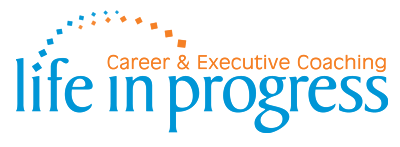
by Deanna Parkton and Ed Hunter
The landscape of employee benefits is transforming. As we move further into the 2020s, organizations are recognizing that traditional healthcare and retirement packages, while still foundational, may no longer suffice to attract and retain top talent. Today’s workforce demands more holistic support that acknowledges them as whole people with diverse needs.
The Mental Health Revolution
The pandemic was a start to a shift in how employers viewed mental health benefits. What was once considered a “nice-to-have” perk has become an essential component of competitive benefits packages. Companies are investing heavily in comprehensive mental health programs that go beyond basic Employee Assistance Programs (EAPs). According to the National Alliance on Mental Illness, more than 80% of workers believe mental health benefits are important to creating a positive workplace culture.
Spring Health, a mental health platform utilized by employers and healthcare plans, found that 44% of employees are more stressed in 2025 than they were five years ago. Forward-thinking companies are also incorporating tools to scale mental health support, making resources more accessible and personalized for their workforce.
Professional Development: A Focus On Human Capital
With more access to information and continuous advancements in technology, the workplace learning landscape has also transformed. Professional development is no longer a luxury perk; it’s become an imperative for both organizations and employees to stay competitive.
Research shows that 94% of employees stay longer at companies that invest in their professional development, according to LinkedIn’s 2024 Workplace Learning Report via UMass Global. This statistic alone makes a compelling case for learning and development programs. Additionally, the World Economic Forum’s Future of Jobs 2025 Report indicates that 39% of current skill sets will be significantly changed or outdated between 2025 and 2030, making continuous learning essential for both individual career survival and organizations.
Beyond traditional tuition reimbursement, companies are offering diverse learning pathways including online courses, conferences, certification programs, mentorship opportunities, and even sabbaticals for skill development. What makes professional development even powerful is its effect on organizational culture. Employees who receive learning opportunities become more engaged, innovative, and are likely to step into leadership roles. Perhaps most importantly, they feel valued, which translates directly into loyalty and performance.
Work-Life Integration: Beyond Balance
Over the years, the conversation has evolved from work-life balance to work-life integration, recognizing that modern professionals don’t compartmentalize their lives into “work” and “personal” buckets. Progressive companies are responding with benefits that support the whole person across all life stages.
Some companies have expanded family leave policies, dependent care flexible spending accounts, fertility and reproductive health support, and financial wellness programs. Other additions may include financial planning services, student loan repayment assistance and even emergency savings programs alongside traditional retirement plans.
The Four-Day Workweek
The idea of the four-day workweek has captured attention globally. What began as a fringe idea has evolved into a serious policy consideration backed by research. The largest study on a four-day workweek to date included 141 companies across six countries and found that moving to a four-day work week without losing pay leaves employees happier, healthier and higher-performing. At the end of the six-month experiment, 90% of companies retained the four-day arrangement.
Additionally, Fortune reported a study of 45 German companies found that the average revenues among participant companies increased by 36% compared with the previous year. There was also a 42% decrease in employee resignations and a 64% reduction in burnout. This information makes a compelling business case for economic benefits on top of positive work culture and productivity.
The Bottom Line
Rather than transactional arrangements focused solely on compensation and traditional insurance, forward-thinking companies are building comprehensive support systems that treat employees as whole people with evolving needs. Companies that invest in their employees’ mental health, continuous learning, and overall well-being are positioning themselves for sustained success. Offering comprehensive benefits not only improves recruitment but reduces turnover, increases productivity, and creates more resilient organizations. Organizations that embrace this transformation will find themselves better positioned to thrive, and not just survive, in the increasingly complex landscape ahead.
For more ideas on how you can strategize your work, consider working with a career coach. A coach can help you identify strategies to face challenges head on. Check out our executive coaching services and sign up for a free consultation here.
Deanna Parkton is a writer, career coach and educator with a passion for professional development and work wellness and happiness. With a focus on self-reflection, she works with individuals in their quest to reach their career goals as well as satisfaction in work-life balance. You can find more of her writing at workinglivingwell.com and she can be reached at workinglivingwell@gmail.com.
Ed Hunter is a Professional Career and Executive Coach and principal of Life in Progress Coaching. He is certified by the international Coaching Federation as a Professional Certified Coach.. He is also a Certified Executive and Leadership Development Coach. Ed has coached over a thousand professionals to create authentic careers and balanced work lives, and has a special interest in career development for adults with Autism. To connect with Ed, schedule a free consultation here.
